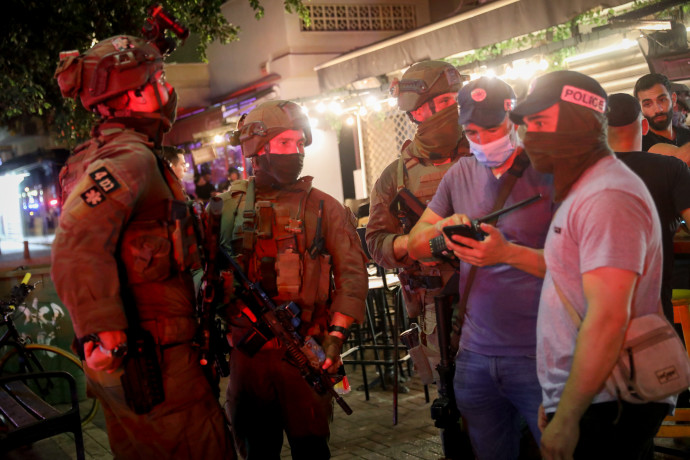If there’s any place where you have to acknowledge there are various truths, narratives and realities that need to be accepted to prevent the distinct possibility of going crazy, it’s Israel.
We’re the Start-Up Nation and we’re “the occupier.” We’re a military superpower, yet we don’t know how to use blinkers when we drive. We’ve got some of the best restaurants in the world, yet the poverty level is among the highest in the developed world.
And it’s a place where in one evening you can join other Israelis in helping Palestinians celebrate Ramadan at a joyous Iftar feast only to come home to learn that a different Palestinian decided to mark his holiday by opening fire on Tel Aviv’s most crowded evening entertainment center, Dizengoff Street, a few storefronts down from where your son works as a cocktail maker.
The Iftar meal was organized by the Interfaith Encounter Association that brings together Jews and Muslims in Israel and the Palestinian Authority for dialogue and engagement. My wife and I have been members of one of the association’s few dozen groups nationwide, meeting regularly with Palestinians from Azariya, Abu Dis and east Jerusalem over the last few years. The last two years of the pandemic have proved challenging with only one in-person encounter.
At Thursday night’s dinner, we reunited with past and current participants. Yassin proudly showed us photos of the new shoe store he just opened in Azariya. Marwan, an oud player who performs with a mixed Jewish-Muslim band, commiserated that he’s suffered financially during the pandemic but expressed hope for the summer. It felt like reuniting with old friends – which they were.

And it gave a sense that amid the tensions, violence and struggles that Israelis and Palestinians have been entangled with for over a century, people-to-people encounters do provide a ray of hope that it doesn’t always have to be that way.
That fuzzy feeling was shattered a half hour later when our son sent a WhatsApp message to our family group that he was fine and we shouldn’t worry. That was our introduction to the news of the terrorist attack that had exploded on Dizengoff at the Ilka Bar.
After ascertaining that he was safely ensconced in a shelter in the basement of his restaurant, we, like the rest of the country, turned on the TV and watched the drama unfold.
The fact that the terrorist carried out his attack on Dizengoff was surely not random.
That symbol of the modern Israeli – shaved heads, tattooed and pierced bods, sitting in the balmy evening with double espressos, gourmet cocktails and local brews – all reduced to a scene of terror, chaos and bloodshed.
We’re used to seeing those scenes in Palestinian towns in the West Bank when the IDF is on hot pursuit of a suspect. But to watch on live TV the heart of Tel Aviv being shut down and residents shuttered in their darkened apartments as police shone lights in the narrow alleys and upper levels of those old apartment buildings in their door-to-door search for the at-large terrorist, was as jarring and sad as it was riveting.
Anger, indignation, resignation, apathy... they’re all natural reactions to those various truths and realities that intertwine here.
Some people can live with that dichotomy that there’s good and bad in our lives. There are Israelis and Palestinians in this land who acknowledge each other’s existence and each other’s pain. At the same time, a mature adult from Jenin can make his way into Tel Aviv and go on a murderous rampage against Jews.
Other people – like Eitam Megini and Tomer Morad, two friends who were simply out on a nice Thursday night having a drink at the Ilka, or Barak Lufan, a father of three – died because the narrative of hate got the upper hand. Next time we see our son, we’ll surely give him a longer and harder hug than usual. We’ll think of the superhuman work our security forces did to locate the terrorist, kill him and return security to Tel Aviv, and we’ll curse that side of Palestinian culture that raises their children to hate Jews and urges them to kill as many as possible.
At the same time, we’ll continue meeting and exploring the possibilities of building a future together with the Palestinians we have come to know as decent, loving human beings.
There’s really no other choice. Otherwise the bad guys win.
